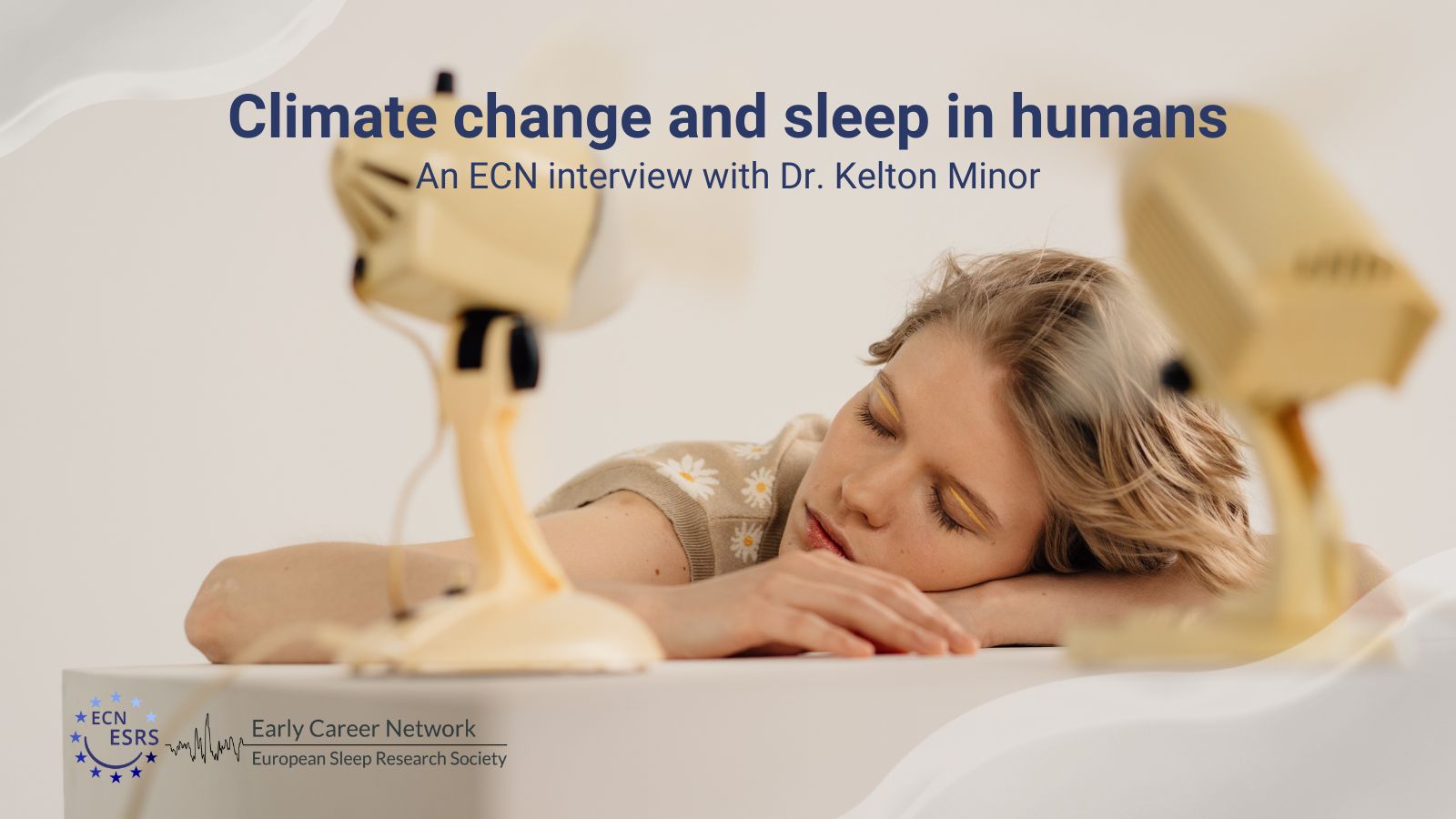Climate Change and Sleep in Humans

Dr. Kelton Minor
Postdoctoral Research Scientist at Columbia University and member of The Lancet Countdown on Health and Climate Change’s Working Group. Follow on X (Twitter).
Dr. Adriana Michalak, Sustainability Lead of the Early Career Network (ECN), interviewed Dr. Kelton Minor, a postdoctoral researcher at Columbia University, who studies human adaptation to planetary change and climate hazards, including the impact of global warming on sleep. In the interview, Dr. Minor discusses his research on how global warming and urbanization affect human sleep.
Can the weather outside impact how we sleep indoors?
Dr. Minor highlights the long-standing interest in this question, which goes beyond sleep to encompass wider health, mental well-being, and socioeconomic considerations. Traditionally, research on temperature and sleep has been confined to tightly controlled laboratory settings, revealing a goldilocks zone of comfort deviations which lead to poorer sleep quality if the temperature is too hot or too cold. Given that nighttime warming progresses more rapidly than daytime warming on a global scale, it presents substantial challenges for human adaptation, consequently impacting sleep patterns and physiology. Moreover, urbanization adds another layer of complexity, with cities absorbing energy during the day and emitting it as heat at night. Dr. Minor also highlights the adaptive nature of human behaviour, emphasizing our capacity to modify our environment for comfort and better sleep. These combined factors have prompted Dr. Minor and his colleagues to investigate the nuanced relationship between temperature fluctuations and sleep quality in real-world scenarios.
Through his research, Dr. Minor seeks to surpass the limitations of laboratory studies and explore how humans adapt to environmental changes in their sleep habits. This interdisciplinary approach, bridging sleep science with climate research, holds promise for understanding the intricate interplay between planetary shifts and human well-being. As sleep researchers continue to unravel the mysteries of slumber, Dr. Minor’s work offers a compelling avenue for addressing the multifaceted challenges posed by climate change on our nightly rest.
Impact of climate change on sleep quality
- Women and elderly individuals are affected more by increasing nighttime temperatures compared to men and younger individuals.
- Disparities in access to resources like air conditioning exacerbate the effects of temperature fluctuations on sleep, implying that those who cannot afford AC may be more adversely impacted by temperature changes.
- There is a socioeconomic dimension to sleep quality, with individuals of lower socioeconomic status facing greater challenges in maintaining optimal sleep conditions, especially in the context of climate change-induced temperature fluctuations.
Other publications from Dr. Minor:
- Chevance et al. (2024). A systematic review of ambient heat and sleep in a warming climate. Sleep Medicine Reviews.
- Minor et al. (2022). Rising temperatures erode human sleep globally. One Earth.
- Jonasdottir, Minor and Lehmann (2020). Gender differences in nighttime sleep patterns and variability across the adult lifespan: A global-scale wearables study. Sleep.
- Prentice et al. (2024). Education outcomes in the era of global climate change. Nature Climate Change.
Recent publications from ESRS members
- Meyer et al. (2024). The sleep-circadian interface: A window into mental disorders. Proc Natl Acad Sci U S A.
- Elder et al. (2024). An online behavioural self-help intervention rapidly improves acute insomnia severity and subjective mood during the COVID-19 pandemic: a stratified randomised controlled trial. Sleep.
- Parry et al. (2024). A 1-week sleep and light intervention improves mood in premenstrual dysphoric disorder in association with shifting melatonin offset time earlier. Arch Womens Ment Health.
- Wickwire et al. (2024). Depression and comorbid obstructive sleep apnea: Association between positive airway pressure adherence, occurrence of self-harm events, healthcare resource utilization, and costs. J Affect Disord.
- Ekström et al. (2024). Exertional breathlessness related to medical conditions in middle-aged people: the population-based SCAPIS study of more than 25,000 men and women. Respir Res.
- Olsen et al. (2024). A deep transfer learning approach for sleep stage classification and sleep apnea detection using wrist-worn consumer sleep technologies. IEEE Trans Biomed Eng.
- Waeber et al. (2024). Night to night variability of Pulse Wave Amplitude Drops index. Sleep Med.
- Zatti et al. (2024). Turning alterations detected by mobile health technology in idiopathic REM sleep behavior disorder. NPJ Parkinsons Dis.
- Böhmer et al. (2024). Long-term effects of environmental dynamic lighting on sleep-wake rhythm, mood and behaviour in older adults with intellectual disabilities. J Intellect Disabil Res.
- O’Connor-Reina et al. (2024). Risk of cancer in patients with sleep apnea: comparison of surgery versus CPAP in a long-term follow-up study. Eur Arch Otorhinolaryngol.




